The QUSTEC doctoral programme involves 37 doctoral candidates working on 37 research projects in the cutting-edge field of quantum science. Get to know them and find out what they are studying below.
University of Basel
1.E Scanning probe microscopy of atomic structures and molecular assemblies on superconductive materials
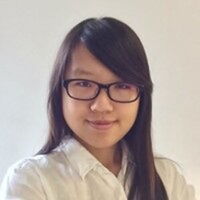
- Host organisation: University of Basel, Physics Department
- Contact: jungching.liu@unibas.ch
- About me: I am from Taiwan, which is a beautiful island full of passionate people. I finished my higher education in several places, including my homeland, Hong Kong, and Sweden. Being interested in experiencing different academic cultures, I am currently working as a Ph.D. student in University of Basel, Switzerland. My field of interest lies in scanning probe microscopy and surface science. During my Master’s thesis, I started to work with scanning tunnelling microscopy, and use this technique to characterize different amount of bismuth deposition on the InAs(111)B surface. Now, in University of Basel, I continue to explore surface science at liquid helium temperature, expecting to find interesting interactions with superconducting materials.
- Thesis topic: My project is about using the scanning probe microscopy to investigate atomic structures and molecular assemblies on the superconducting material. This topic includes a wide variety of works. For example, growing silver (Ag) films on the superconducting niobium (Nb) surface, synthesizing graphene nanoribbons (GNRs) on top of Ag films, and most importantly, investigating interactions between GNRs and the Ag/Nb substrate. With the help of scanning probe microscopy, we aim for fabricating the system that is possible for hosting Majorana fermions. We expect that our work is able to provide an inspiration to the novel carbon-based spintronics or quantum computers.
- Individual Training Panel:
Supervisors: Ernst Meyer, Rémy Pawlak
Co-supervisor: Wulf Wulfhekel
Mentor: Martino Poggio
1.I Study of thermal transport in low-dimensional materials
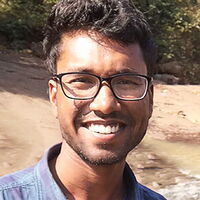
- Host organisation: University of Basel, Physics Department
- Contact: chaitanya.arya@unibas.ch
- About me: I graduated from Indian Institute of Technology (IIT) Delhi, India (2014-19) with Bachelor of Technology in Engineering Physics and Masters of Technology in Solid States Materials. In summer of 2018, I was an internship student at NUS Nanoscience and Nanotechnology Initiative (NUSNII), Singapore. Before starting my PhD, I was working as a visiting research student at the Toyota Technological Institute, Japan.
Interests – Nanoscience and Nanotechnology, Neuroscience, Financial Markets, Politics, Climate Change. - Thesis topic: Our project is to study the wave-particle crossover, i.e. the crossover between particle-like and wave-like phonon transport, by measuring the thermal conductivity of superlattices in nanowires. We will perform phonon transport experiments varying the density and the length of the SL period. We will perform thermal conductance measurements using microfabricated sensors and devices.
- Individual Training Panel:
Supervisor: Prof. Ilaria Zardo, University of Basel
Co-supervisor: Dr. Bernd Gotsmann, IBM Research Zurich
Mentor: Prof. Dominik Zumbühl, University of Basel
2.A Hydrodynamic thermal transport and non-linear effects in 2D materials by means of pump-probe experiments
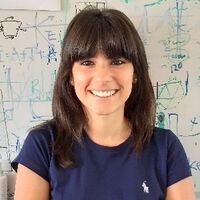
- Host organisation: University of Basel, Department of Physics
- Contact: grazia.raciti@unibas.ch
Klingenbergstrasse 82
4056 Basel
+41(0) 61 207 5677 - About me: I come from Italy, I completed my bachelor’s degree in Physics at the University of Catania (Sicily, Italy) and then I moved to the University of Pisa (Tuscany, Italy) for my master’s. My master project was based on the optical characterization of III-V semiconductor quantum wells with different spectroscopic techniques. During this period, I developed a deep interest in nanomaterials and in their applications, which drove me to move to the University of Basel in the Nanophononics group.
- Thesis topic: “Hydrodynamic thermal transport and non-linear effects in 2D material by means of pump-probe experiments”. My current research is focused on the investigation of the hydrodynamic regime in nanomaterials (graphene and 2DEGs). I’m involved in the building of a sophisticated time-resolved Raman setup that allows a direct determination of the temporal evolution of the phonon population, which will enable us to extract hydrodynamic heat transport parameters.
- Individual Training Panel:
Prof. Dr. Ilaria Zardo
2.F Hole Spin Qubits in Ge/Si Nanowires
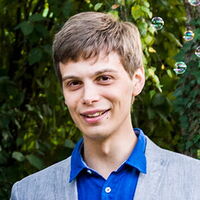
- Host organisation: University of Basel / Department of Physics
- Contact: pierre.chevalierkwon@unibas.ch
Department of Physics
University of Basel
Klingelbergstrasse 82
4056 Basel, Switzerland - About me: I grew up in Burgundy, deep in the French countryside, far away from the academic world. I nevertheless studied Fundamental physics at Paris-Saclay, an internationally renowned university. I obtained my first research experience in the Laboratoire de Physique des Solides where I studied superconductors. During my master, I received an excellence mobility scholarship that allowed me to experience research in an international environment, at the Center for Integrated Nanostructure Physics in South Korea. I was able to continue in nanophysics field there, studying 2D materials.
- Thesis topic: “Hole Spin Qubits in Ge/Si Nanowires”Quantum computer became a hot research topic these last decades. Indeed, quantum computer can potentially solve problems (related to cryptography or quantum simulation for example) that classical computer will never be able to solve. Making a good qubit, the quantum equivalent of a classical bit, is the backbone of making a functional quantum computer. My project is to make a qubit using hole spin in a Ge-Si core-shell nanowire. Among many attempts to made the best qubit, this device may have numerous advantages such a high electrical tunability or a fast switching of the qubit state.
- Individual Training Panel:
PhD Supervisor: Prof. Dr. Dominik Zumbühl
3.G Quantum transport in superconductor-semiconductor nanowire hybrid devices with axially built-in quantum dots as spectrometers
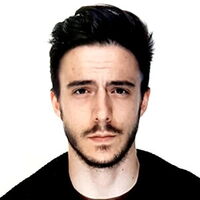
- Host organisation: University of Basel / Physics Department
- Contact: carlo.ciaccia@unibas.ch
+41 (0) 61 207 3864 - About me: I hold a Double M.Sc. in Nanoelectronics & Nanoquantistic Devices at Turin Polytechnic & Paris Diderot University. I carried on my Master thesis at IMB Research – Zürich, in the group of Dr. Fabrizio Nichele on “Local electrostatic control of TASE-grown InAs nanowires”.
- Thesis topic: “Quantum transport in superconductor-semiconductor nanowire hybrid devices with axially built-in quantum dots as spectrometers” My current research focuses on electronic transport in hybrid semiconducting-superconducting quantum devices. The aim of the PhD is to investigate transport properties of semiconducting devices with strong spin-orbit interaction coupled to conventional superconductors. These exotic quasiparticle excitations, also known as Majorana or Andreev bound states, have been proposed as building blocks of new quantum computing architectures.
- Individual Training Panel:
Supervisor: Prof. Christian Schönenberger
3.J Microkelvin Nanoelectronics
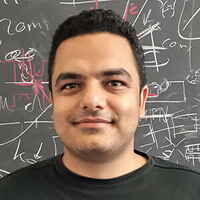
- Host organisation: University of Basel / Department of Physics
- Contact: omid.sharifisedeh@unibas.ch
Klingelbergstrasse 82
4056 Basel, Switzerland
+41 (0) 61 207 3786 - About me: I earned my master of science in Solid State Physics at the University of Tehran, Iran. In the MSc period, I worked on the interaction of THz EM wave with quantum rings in the presence of Rashba spin-orbit interaction. As a result of this study we published a paper in Physical Review B, with the title “Terahertz radiation, circular dichroism, and optical activity of a Rashba quantum ring subjected to a static electric field”.
- Thesis topic: “Microkelvin Nanoelectronics” I investigate the transport of nanoelectronics devices at ultra-low temperatures, namely the submillikelvin regime. For this purpose, we use a technique called nuclear adiabatic demagnetization. In this technique, we polarize the nuclear spins of an on-chip and/or an off-chip material such as copper, indium, and by ramping down the magnetic field in an adiabatic process, we reach ultra-low nuclear spin temperatures. Thanks to the partial non-adiabaticity of this process, the nuclear spins cool down the electrons of the structure through hyperfine interaction. This makes the submillikelvin temperatures achievable.
- Individual Training Panel:
PhD supervisor: Prof. Dominik Zumbuhl
5.A Hybrid quantum networks with atomic memories and quantum dot single-photon sources
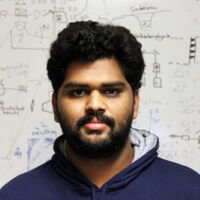
- Host organisation: University of Basel / Department of Physics
- Contact: madhavakkannan.saravanan@unibas.ch
- About me: I was born and brought up in Salem, a city in Southern part of India. After my schooling I moved to Chennai for my Bachelor’s degree in Physics at Loyola college. During my Bachelors I got a chance to attend a summer school on experimental physics at HBCSE, Mumbai, which sparked my interest in this subject. After graduation I moved to Germany, I did my Masters in Physics at the University of Bonn where I specialised in quantum optics and atomic physics. My master thesis was titled “Mode-Matched Fiber Fabry-Pérot cavities for Quantum technologies”. I built fiber integrated optical cavities that had improved mode matching and high coupling efficiencies. I like to spend my free time exploring new cities and I am interested in film photography.
- Thesis topic: “Hybrid quantum networks with atomic memories and quantum dot single-photon sources” Quantum information and computing rely on a quantum network to facilitate information exchange (in form of qubits) between quantum processors and helps in timing and synchronising the system. Understanding the techniques to establish such a network marks an important step for the development of quantum computers. My thesis focuses on interfacing a solid-state quantum dot single photon source to a Rubidium vapour quantum memory that can store and retrieve single photons. This involves developing techniques to efficiently store single photons in the memory and retrieve them on demand, without affecting the quality of the photons during the storage process. Further, such memories and sources will be used as nodes that connects several other sources and/or processors to build a Quantum Network.
- Individual Training Panel:
Supervisor: Prof. Philipp Treutlein, Institute of Physics, University of Basel
5.B Solid-state spins in an optical cavity
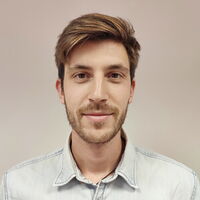
- Host organisation: University of Basel / Department of Physics
- Contact: andrea.corazza@unibas.ch
Klingenvergstrasse 82
4056 Basel, Switzerland
+41 (0) 61 207 5677 - About me: I grew up in a small city between Venice and the Dolomites, in Italy. I completed both my Bachelor and Master degrees cum laude in Materials Science at the University of Padova (Veneto, Italy). During my Master studies, I attended a 6 months Erasmus in Physics at Aarhus University (Denmark), where I discovered my passion for light-matter interactions in the quantum regime studying and working in several research projects. After this experience, I came back to the University of Padova where I carried out my Master thesis in the NanoStructure Group at the Physics department on the control of the Er3+ spontaneous emission properties through emitter-nanocavities coupling, with the main emphasis on the reduction of its radiative lifetime exploiting the Purcell effect generated by specific optical nanocavities.
- Thesis topic: “Solid-state spins in an optical cavity” My current research field is quantum- and nano-optics and my project focuses on the study of the Nitrogen vacancy centre in diamond crystals as optically-active solid-state spins. NV centres are a resource for creating spin-photon entangled pairs, allowing two remote spins to be entangled since the photons would act as entangling “glue”, potentially covering a key role in the development of quantum networks and quantum memories. At the moment spin-spin entangling rates are presently too low to be useful in any quantum technology application and to overcome this limitation we are studying how to enhance the creation of phonon-free single photons by embedding NV centres in diamond in a tunable micro-cavity, exploiting the Purcell effect.
- Individual Training Panel:
Supervisor: Richard Warburton,
Co-supervisor: Patrick Maletinsky
5.C Development of quantum technologies for molecular systems: quantum sensing of molecular and chemical properties
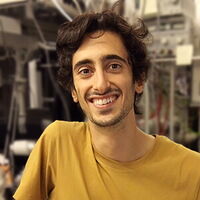
- Host organisation: University of Basel, Department of Chemistry
- Contact: pietro.vahramian@unibas.ch
Klingelbergstrasse 80,
4056 Basel - About me: I grew up in Milan, Italy, where I got both my Bachelor and Master degrees in Physics. After a Bachelor thesis in complex fluids, I moved towards “quantum” stuffs and ended up doing my master thesis in Vienna in the group of Markus Ardnt, where I have been working towards bringing single levitated nanorods in the UHV regime by means of feedback and cavity cooling techniques. Moving from single nanoparticles to bunch of molecules, I landed now in Basel in the group of Stefan Willitsch.
- Thesis topic: “Development of quantum technologies for molecular systems: quantum sensing of molecular and chemical properties” Imagine getting two halves of a molecule and slowly, very gently get them closer and closer, until they attract each other and bound to form the full molecule. This is the main topic of my PhD: study molecular collisions at extremely low temperatures and with exquisite control over one or both the halves of the wannabe molecule. In particular, I will implement protocols to initialize and read-out motional and vibrational states of single molecular ions coupled to atomic ions, following their state evolution during collisions with neutral molecules by means of quantum non-demolition state detection protocols.
- Individual Training Panel:
Supervisor: Prof. Stefan Willitsch
QUSTEC
- Fellows & Projects
- Outreach & dissemination
- Training at QUSTEC
- Contact & additional information
University of Freiburg
2.E Quantum Simulation Based on Optically Trapped Ions
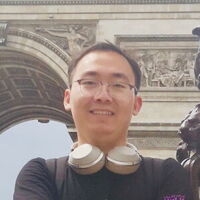
- Host organisation: University of Freiburg, Institute of Physics
- Contact: wei.wu@physik.uni-freiburg.de
Hermann-Herder-Str. 3
79104 Freiburg
+49 (761) 203 7686 - About me: I am from Pingyao, a Chinese ancient city with a history of over 3,000 years. I got my BSc degree from National Talents Training Base in Fundamental Science (Physics) at Shanxi University in 2018, then got my M.Phil. degree at State Key Laboratory of Quantum Optics and Quantum Optics Devices at Shanxi University in 2021. I was working in Prof. Antoine Browaeys’ Group at Intitut d’Optique Graduate School as a scientific collaborator in 2019. I am also a part-time editor of Chinese Laser Press. During my free time, I like to play table tennis with my friends or play Sudoku with computers.
Personal Homepage
Google Scholar - Thesis topic: “Quantum Simulation Based on Optically Trapped Ions” Gaining coherent control over the electronic degrees of freedom will lead to coherent control over different trapping states, which are dependent on the electronic state the ions will be exposed to the related potential. In a superposition of states, the ion is exposed to different potentials at the same time. This will allow for structural phase transitions of ion crystals (linear chains and zig-zag structure simultaneously), which is the quantum phase transitions driven by quantum fluctuations.
- Individual Training Panel:
Prof. Tobias Schätz, University of Freiburg
4.A Irreversibility and entropy production in quantum nonequilibrium systems
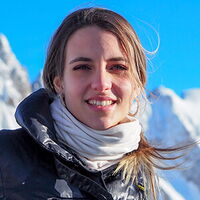
- Host organisation: University of Freiburg, Institute of Physics
- Contact: alessandra.colla@physik.uni-freiburg.de
- About me: I graduated cum laude with a Master of Science in Theoretical Physics from Università degli Studi di Padova (Padua, Italy) in September 2018, with a thesis in Mathematical Physics titled “Dynamics of quantum spin chains”, in which I worked on testing a novel method to study quasi-integrable quantum systems. During my studies, I was able to take part in enriching intercultural experiences, the latest of which was a semester spent at the Graduate School of Physics at Boston University (Boston, MA, USA). After graduating, I took a break from academia to work in non-research-related industry, and while it has been a rewarding experience, I am now happy to welcome fundamental research back into my life.
- Thesis topic: “Irreversibility and entropy production in quantum nonequilibrium systems”. Irreversible processes in open quantum systems play an important role in many fields of quantum science and its technological applications, since genuine quantum features such as coherences and entanglement are often strongly suppressed or even destroyed by the interaction with an uncontrollable noisy environment. Moreover, the characterisation and quantification of irreversible behavior is of central importance in the formulation of fundamental principles of quantum thermodynamics. The central goal of the project is the development of a systematic open system approach to irreversibility in quantum systems far from equilibrium, employing recent exact results on quantum entropy production based on concepts of quantum information theory.
- Individual Training Panel:
Supervisor: Heinz-Peter Breuer, Albert-Ludwigs-Universität Freiburg
Co-supervisor: Stefan Buhmann, Albert-Ludwigs-Universität Freiburg
Mentor: Guido Pupillo, Université de Strasbourg
4.B Bose Einstein Condensation of Photons in a Cavity
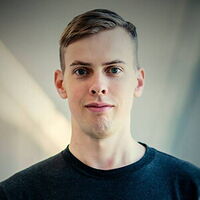
- Host organisation: University of Freiburg, Institute of Physics
- Contact: andris.erglis@physik.uni-freiburg.de
- About me: I come from Latvia. I completed my bachelor degree in Physics in University of Latvia. My master’s degree I received from King Abdullah University of Science and Technology (KAUST) in Saudi Arabia in Electrical Engineering. My master’s thesis was about Photon Bose – Einstein Condensation in disordered materials. I have an experience working with atoms in magnetic field and basic knowledge on working in cleanroom for producing nanodevices. During my bachelor studies I have received a Patron scholarship for excellent studies, I enjoyed various social activities as well as an active work in scientific research. At KAUST I received a Dean’s award for excellent studies. I think my most significant achievement was to finish master’s studies with maximum score in all subjects.
- Thesis topic: “Bose Einstein Condensation of Photons in a Cavity”. The photonic Bose-Einstein condensate is a recently observed collective ground state of a coupled light-matter system. We describe of this novel quantum state on the basis of Macroscopic Quantum Electrodynamics (QED) in dispersing and absorbing environments. The benefit of Macroscopic QED is that we can express all quantities of interest in terms of the Green’s tensor, which allows us to calculate photon modes for complicated geometries. We develop our theory using Open Quantum systems which allows us to determine all the important decay terms of photons and molecules. We apply our formalism to several geometries, e.g., planar cavity, spherically curved mirror cavity and periodical structures.
- Individual Training Panel:
Supervisor: Prof. Stefan Buhmann
4.C Theory and simulation of nonequilibrium dynamics in many-body quantum systems
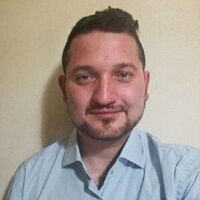
- Host organisation: University of Freiburg, Institute of Physics
- Contact: salvatore.gatto@physik.uni-freiburg.de
- About me: I come from Italy. I completed my Bachelor degree in Physics at Università di Catania, and I graduated cum laude with a Master Degree in Theoretical Physics at Università degli Studi di Trieste in December 2020, with a thesis titled “Dissipative dynamics, open quantum dynamics with light-matter coupling”, in which I studied several aspects of the dynamics of ensembles of qubits. I have experience working with dynamics generated by Lindbladian master equations, and knowledge in open quantum systems theory. During this period, I developed a deep interest in the area of Quantum Optics as well as in the broader area of Quantum Technologies, and now I am working as a PhD candidate at the University of Freiburg, Germany. Besides research, I love to spend my free time travelling, cooking and studying trading online.
- Thesis topic: “Theory and simulation of nonequilibrium dynamics in many-body quantum systems” Many-body quantum systems out-of-equilibrium show a wealth of interesting features. Examples of processes investigated in recent years include charge and heat transport in nanostructures as well as the dynamics of correlated electron systems driven by strong laser fields. The understanding of the underlying physical mechanisms is of fundamental interest as well as a prerequisite for possible applications. The goal of the project is to investigate the nonequilibrium dynamics of quantum systems using theoretical and numerical methods and to apply our formalism to understand physical phenomena such as correlation effects and unusual thermalization in nanoelectronic or thermal devices like single-molecule junctions or carbon-based architectures.
- Individual Training Panel:
Supervisor: Michael Thoss, University of Freiburg
6.C Toward s-wave atom-ion interactions in a pure optical trap
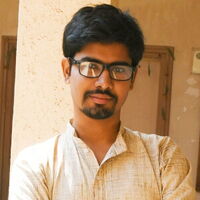
- Host organisation: University of Freiburg, Institute of Physics
- Contact: apurba.das@physik.uni-freiburg.de
https://www.qsim.uni-freiburg.de/ - About me: I grew up in Bankura, West Bengal, India. I graduated with an M.Sc. (Physics) degree from Visva-Bharati, Santiniketan, India with a master’s thesis on the computational study of nanoparticles using conductive atomic force microscopy (CAFM). I enjoy working on both computational and experimental problems. During my bachelor’s study, I got the opportunity to visit HBCSE-TIFR, Mumbai, India through the NIUS programme and performed a research study on the interference in ophthalmic lenses. In my master’s, as a student in Quantum Optics, I did an internship in ultrafast optics at the Tokyo University, Japan which allowed me to experience the research in an international environment. In the last 2-3 years, I developed my interests in quantum technologies and now, after completing studies in India, I arrived to Germany for my PhD in the Prof. Tobias Schätz’s team.
Besides research, in my leisure time, I like coding, playing cricket, travelling, poetry and cooking. - Thesis topic: “Toward s-wave atom-ion interactions in a pure optical trap” A laser-cooled Ba+ ion at the Doppler temperature of about 400 micro-Kelvin is immersed into a bath of ultra-cold Li atoms with a typical temperature of a few micro-Kelvin. Using far-detuned laser beams of different wavelengths, a common optical trap for both the ion and the atoms can be created. One can, in principle, reach the s-wave regime of atom-ion interactions within this new trap where many interesting phenomena are waiting to be experimentally observed. In my PhD thesis, I will focus on Feshbach resonances, shape resonances and cold molecular ions in interactions between Li atoms and a Ba+ ion.
- Individual Training Panel:
Supervisor: Prof. Dr. Tobias Schätz, Albert-Ludwigs-Universität Freiburg
Karlsruhe Institute of Technology
1.C Elastic Tuning of electronic properties of quantum materials
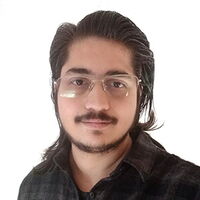
- Host organisation: Karlsruhe Institute of Technology
- Contact: anmol.shukla@kit.edu
- About me: I am from Lucknow, India. I obtained a master’s degree in Solid State Materials from Indian Institute of Technology Delhi with a thesis focused on Iron-based superconductors. Part of this work was published and presented at several conferences. I have also worked on spin simulations for 2D lattices of Iron (III) Oxide. Apart from research, I enjoy photography and traveling.
- Thesis topic: “Elastic Tuning of electronic properties of quantum materials” In a trivial sense, all materials exist due to quantum mechanics. However, the term ‘quantum materials’ is usually used to describe the materials with strong electronic correlation or display emergent phenomena. Superconductivity, the most general example, is a phenomenon emerging from the pairing of two electrons. Understanding these properties and their control via temperature, pressure, magnetic field, dimensionality, etc., has vast technological implications.
This doctoral project aims at using novel pressure techniques to investigate the electronic states in quantum materials, especially, Iron-based superconductors. Pressure application is a proven way to fine-tune the ground state of quantum materials. The results will be complemented with the thermodynamic and magnetic measurements. - Individual Training Panel:
Supervisor: Prof. Dr. Matthieu Le Tacon, KIT
Co-Supervisor: Dr. Christoph Meingast, KIT
1.D Preparation and characterization of spin-polarized two-dimensional electron systems (2DES) in correlated quantum materials
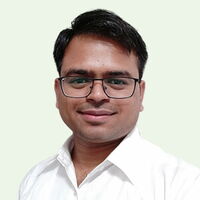
- Host organisation: Karlsruhe Institute of Technology, Institute for Quantum Materials and Technologies (IQMT)
- Contact: arun.jaiswal@kit.edu
+49 721 608-24690
Karlsruhe Institute of Technology (CN), Hermann-von-Helmholtz Platz 1, Eggenstein-Leopoldshafen 76344, Germany
Building Number: 425, Room Number: 324 - About me: I was born and grew up in Siddharthnagar (Uttar Pradesh, India). I obtained my bachelor’s degree with majors in Physics and Mathematics from DDU Gorakhpur University India. Following my interests, I moved to the Indian Institute of Technology Delhi and obtained a master’s degree in Solid State Materials in 2019. Currently, I am a PhD candidate at KIT. During masters, I was awarded DAAD scholarship, with which I carried out my master’s thesis work at KIT. The motivation of my thesis was to understand the electronic transport properties of SrIrO3 thin films. SrIrO3 is of current interest due to its strong spin-orbit coupling (SOC) and its interplay with moderate electronic correlations. In particular, I grew the thin films of SrIrO3 and studied their electronic transport properties through temperature-dependent magneto-transport measurements. After completing my master’s degree and before joining PhD I briefly worked as a research assistant at KIT until February 2020. My current research interest is to understanding novel electronic, magnetic properties in oxide thin films and heterostructures. Besides research, I love to spend time by cooking, travelling and exploring the music of different countries.
- Thesis topic: “Preparation and characterization of spin-polarized two-dimensional electron systems (2DES) in correlated quantum materials”. In the last decade, heterostructures (HS) based on transition metal oxides (TMO) have emerged as a playground for generating and manipulating new quantum states that are otherwise absent in individual constituents. Epitaxial strain, charge transfer, symmetry breaking, and exchange interactions are most likely the main reasons for the changed behavior and provide huge potential for tailoring new materials for spintronics. LaAlO3/SrTiO3 is one of the most prominent example of TMO-based HS. Here, the LaO-TiO2 interface results in a two-dimensional electron gas (2DEG) with strong Rashba-type SOC – in particular suitable for spin-manipulation.
In my PhD project, the focus is placed on spin-polarized 2DEGs on the base of TMO HS comprising of correlated quantum materials. We will follow different routes to generate 2DES such as interfacial doping or spatial confinement (-doping). The spins of the 2DES are aimed to be polarized by the use of magnetic insulating layers via the interplay between exchange interaction and SOC. - Individual Training Panel:
Supervisor: Prof. Matthieu Le Tacon, Institute for Quantum Materials and Technologies, KIT
Co-supervisor: Dr. Dirk Fuchs, Institute for Quantum Materials and Technologies, KIT
2.C Improving the coherence in superconducting quantum circuits based on granular aluminium through optimization of material properties
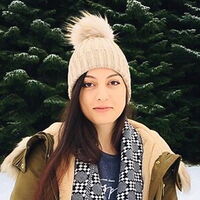
- Host organisation: Karlsruhe Institute of Technology, Institute for Quantum Materials and Technologies (IQMT)
- Contact: mahya.khorramshahi@kit.edu
Karlsruhe Institute of Technology (KIT)
Hermann-von-Helmholtz-Platz 1
76344 Eggenstein-Leopoldshafen
Germany - About me: I received my Master degree in solid state physics from university of Tehran. The main topic of my master was “Analysis of copper oxide superconducting compounds under pressure”. Inspired by my interest in experimental physics, I have worked in various labs during my master studies and this helped me to get introduced to a wide range of research fields. Finally, I found quantum computing very fascinating and decided to persue my PhD in this field.
- Thesis topic: “Improving the coherence in superconducting quantum circuits based on granular aluminium through optimization of material properties” The aim of this project is to improve further the coherence in high impedance superconducting quantum circuits based on granular aluminum. The project will involve fabrication of superconducting circuits by lithographic methods, their analysis with standard high frequency electromagnetic simulation software, and the characterization of the material characteristics by HF experiments in millikelvin cryostats.
- Individual Training Panel:
Supervisor: Dr. Ioan Pop, KIT
Co-supervisor: Prof. W. Wernsdorfer, KIT
2.D Superconducting quantum circuits based on Tantalum for improved quantum coherence
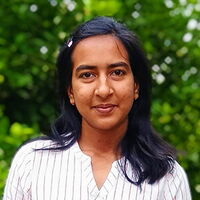
- Host organisation: Karlsruhe Institute of Technology, Institute for Quantum Materials and Technologies (IQMT)
- Contact: ritika.dhundhwal@kit.edu
- About me: I am from Rajasthan, India. I completed integrated M.Sc. degree in Physics from Centre for Excellence in Basic Sciences (CEBS), Mumbai (2014-2019). During my Master’s thesis, I started learning about low temperature superconductors and fabricated NbN thin films with varied degree of disorder by varying the film thickness and the film with highest disorder was studied using magneto-transport measurements. Along with research, I like to do painting and photography.
- Thesis topic: “Superconducting quantum circuits based on Tantalum for improved quantum coherence” Superconducting circuits are promising candidates for quantum devices. A major outstanding problem is the low qubit relaxation as well as coherence time which can be increased by improving design, fabrication process and the superconducting material used. Therefore, material choices can lead to significant improvements in qubit dissipation. Most commonly superconducting materials used in quantum circuits are Aluminium and Niobium. Whereas very recent results showed Tantalum (Ta, Atomic no. 73) as an up-and-coming material for superconducting qubits. The aim of this project is to fabricate lithographically superconducting circuits based on tantalum and characterize material properties of Ta, such as its loss tangent by HF experiments in millikelvin cryostats and the analysis with standard high frequency electromagnetics simulation software. Based on these results the major goal is to implement tantalum-based circuits with improved quantum coherence and to investigate the Josephson junctions based on Tantalum.
- Individual Training Panel:
Supervisor: Dr. Ioan Pop, Institute for Quantum Materials and Technologies, KIT
Co-supervisor: Dr. Thomas Reisinger, Institute for Quantum Materials and Technologies, KIT
3.E Molecular quantum Spintronics combining synthesised magnetic molecules with electrode materials
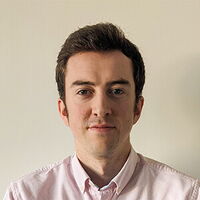
- Host organisation: Karlsruhe Institute of Technology, Institute of Quantum Materials & Technology
- Contact: patrick.lawes@kit.edu
Karlsruhe Institute of Technology (KIT)
Institute of Nanotechnology (INT)
Hermann-von-Helmholtz-Platz 1
76344 Eggenstein-Leopoldshafen
Germany - About me: I come from England, and received a Master of Physics in physics from the University of York, with a particular interest in quantum physics and physics of the nanoscale. I am particularly interested in the unique nature of undertaking research, and the possibility of studying something that has never before been discovered. I conducted a short research program at the Tokyo Institute of Technology studying physically defined hole spin qubits. As well as a great opportunity to conduct research closer to the cutting edge, I also appreciated the opportunity to immerse myself in another culture. I am particularly excited by the opportunities given by QUSTEC, to visit and work in labs in multiple countries, allowing me to see a large variety of both advanced research, and differing cultures. In my personal life, I have a strong interest in popular culture of all kinds, as well as cycling and climbing.
- Thesis topic: “Molecular quantum Spintronics combining synthesised magnetic molecules with electrode materials” Using highly sensitive low temperature, ultra-high vacuum, STM equipment, the re-organisation of electrons in surface molecules, due to the crossing of a quantum critical point will be studied. By physically manipulating pre-synthesised lanthanide double-decker molecules using the tip of the STM, the desired order and orientation of molecules in clusters can be achieved. The quantum critical parameter will be controlled locally using magnetic fields. The purpose of this research is to better understand new quantum materials, towards the interest of quantum computing.
- Individual Training Panel:
Supervisor: Prof. Mario Ruben (KIT)
Co-supervisor: Prof. Jean-Pierre Bucher (University of Strasbourg)
3.F Synthesis of molecular spin qudits with increased Hilbert spaces
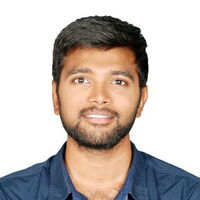
- Host organisation: Karlsruhe Institute of Technology, Institute of Quantum Materials & Technology
- Contact: sai.panguluri@kit.edu
Karlsruhe Institute of Technology (KIT)
Institute of Nanotechnology (INT)
Hermann-von-Helmholtz-Platz 1
76344 Eggenstein-Leopoldshafen
Germany - About me: I am from Andhra Pradesh, India. I have been admitted to the degree of Master of Science (5-year Integrated) in the subject of Chemical Sciences and have been awarded the University Gold Medal at the University of Hyderabad’s convocation held in 2019. I have synthesised and characterised Spin Crossover complexes in UGC-DAE-CSIR-Indore over a period of 7 months and have had an association with some of the most sophisticated instruments of our times (AFM, STM, XPS, VSM-SQUID). I like performing and have been a part of the theatre group in the university and subsequently took part in many plays on various occasions.
- Thesis topic: “Synthesis of Spin Qudits in the Increased Hilbert Space” Synthesis of Ln-based Spin & Optical Qudits and explore their role in molecule-surface interfaces in tuning the electric, optic and magnetic properties. The long-term goal is to design molecular spin qudits with long quantum coherence times and to implement them in Quantum Computation.
hart - Individual Training Panel:
Supervisor: Mario Ruben, KIT, IQMT
Co-supervisor: Paul-Antoine Hervieux, University of Strasbourg
Mentor: Jean-Pierre Bucher, University of Strasbourg, IPCMS
3.H Quantum nanomagnets: Developing new techniques to control and manipulate the magnetization dynamics in small magnetic devices with microwave magnetic fields
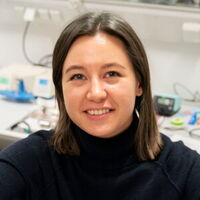
- Host organisation: Karlsruhe Institut of Technology, Institute of Quantum Materials & Technology
- Contact: daria.sostina@kit.edu
Campus Süd
Physikalisches Institut
Geb. 30.23 Rm 2-05
Wolfgang-Gaede Str. 1
76131 Karlsruhe - About me: I grew up in St. Petersburg, Russia. Both of my degrees, Bachelor and Master, were obtained in St. Petersburg State University at the Department of solid-state physics. During my Master studies my research activity was mostly focused on design and study of materials with non-trivial topology, such as combined graphene systems, topological insulators and magnetically doped Rashba semiconductors by means of synchrotron-based techniques. I started to work on projects involving molecular magnetism at Paul Scherrer Institute, Switzerland, then continued my studies already with single-atom magnets in Seoul, South Korea, at the Center for Quantum Nanoscience.
- Thesis topic: “Developing new techniques to control and manipulate the magnetization dynamics in small magnetic devices with microwave magnetic fields”. The main goal of our work is to create a reliable way to coherently manipulate single atomic and molecular spins. The motivation for such a goal is to create the new solid-state architecture for quantum information processing and magnetic sensing. We aim to achieve it by advancing the recently realised combination of electron spin resonance and scanning tunnelling microscopy at extremely low temperatures.
- Individual Training Panel:
Prof. Wolfgang Wernsdorfer
3.I Experimental studies of molecular qubits and implementation of optical read-out schemes based on single- and entangled photon sources
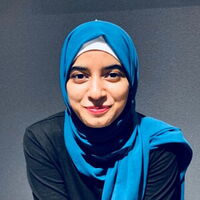
Host organisation: Karlsruhe Institute of Technology, Institute of Quantum Materials and Technology (IQMT)
Contact: safa.ahmed@kit.edu
+49 721 608-43522
About me: I grew up in Dhaka, Bangladesh and obtained my Bachelor’s in Physics in South Korea under a Global Korean Scholarship (GKS) of 5 years. In the final year I joined the Center for Quantum Nanoscience (QNS) as an intern and continued there for my master’s degree. As a Master’s student I worked with XMCD and XMLD joining 8 beamtimes in three different synchrotron facilities in Switzerland, Spain and South Korea accross various collaborative projects. My Master’s thesis was about investigating the magnetic anisotropy of surface embedded rare earth single ions in MgO with room temperature structural stability. Soon after completing my Master’s thesis, I arrived to Germany to start my PhD from September 2020.
Thesis topic: “Experimental studies of molecular qubits and implementation of optical read-out schemes based on single and entangled photon sources” Our main motivation is to develop a fast single-shot read-out of molecular spin qubits, mandatory for quantum information processing. Molecular spin qubits will be fabricated using molecular magnets covalently bonded to a fluorophore, allowing a fast read-out. Transport properties and fluorescence of the devices will be studied in a three-terminal geometry as a function of source-drain voltage, gate voltage, magnetic fields, and light irradiation. The local electrodes enhance the light-matter interaction and, in addition, allow the application of fast gate pulses and micro-wave electric fields, which couple to the spin system via the DC or AC Stark effect. The combined electronic and optical read-out will allow simple quantum information processing protocols. By scanning the excitation laser and by using a few fluorophores with different fluorescence energies, we will perform the optical read-out of single spins inside larger molecules, and in 1D and 2D molecular networks.
Individual Training Panel:
Supervisor: Prof. Wolfgang Wernsdorfer
University of Strasbourg
2.B Coherent ultrafast spectroscopy and control of individual Qbits in van der Waals materials
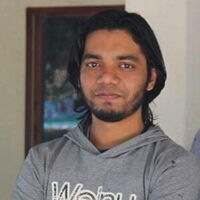
- Host organisation: University of Strasbourg, IPCMS
- Contact: samiul.islam@ipcms.unistra.fr
IPCMS
23 rue du Loess
BP 43, 67034 Strasbourg Cedex 2, France - About me: I am from Bangladesh. I completed my BSc (Bachelor) at the department of Electrical and Electronic Engineering, University of Dhaka. As I progressed through my bachelor, I became more and more interested in fundamental physics. In the final year of my bachelor studies, for my research project I worked on a simulation study of two-dimensional photonic crystal structure design. I obtained the Dean’s award and the Prime Minister Gold Medal award for outstanding results. I decided to shift from engineering to physics and I obtained the Quantum Science and Nanomaterials (QMat) graduate school fellowship at the University of Strasbourg to attend the Master in Physics course. During my master research internship I worked under the supervision of Francois Fras. The research project in my host team was selected as a part of QUSTEC. After finishing my master, I applied for a QUSTEC fellowship with that project and I started my PhD in February 2020.
- Thesis topic: “Coherent ultrafast spectroscopy and control of individual Qbits in van der Waals materials”. I am working with materials which layers are attached by weak van der Waals force. These materials host naturally occurring defects which are single photon sources (also called Quantum emitters). The main purpose of the project is to use non-linear properties of light (femtosecond laser) to investigate the decoherence properties of these emitters and determine how these properties evolve along a large temperature range. By doing this, we will reveal the potential of these emitters to be possibly used as qubits in quantum information systems. We are also trying to engineer these emitters in terms of position and spectral behaviour as opposed to their natural random occurrence and properties in van der Waals materials.
- Individual Training Panel:
Supervisor: Francois Fras, Department of Ultrafast Optics and Nanophotonics, IPCMS
Mentor: Alberto Barsella, Department of Ultrafast Optics and Nanophotonics, IPCMS
3.A Hybrid 2D heterostructures for spin and quantum information processing
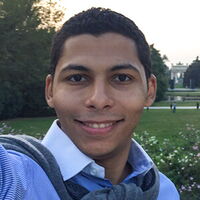
- Host organisation: University of Strasbourg, IPCMS
- Contact: mohamed.soliman@ipcms.unistra.fr
23 rue du Loess, BP 43, 67034 Strasbourg
Office: 1017
+33 (0) 3 88 10 70 84 - About me: I can describe myself with a lot of different titles: I am Muslim, proud Egyptian, and at the same time, a very dynamic world traveller. I like to learn from everything and everyone and I am always open for a deep philosophical conversation. I have a bachelor’s degree in Mechanical engineering from Egypt, a master’s degree in Materials Engineering and Nanotechnology from Italy and now, I have just started my PhD in Condensed Matter Physics in France. My educational path itself can tell you that I am a pretty flexible person. For an updated overview on my work please visit my personal page.
- Thesis topic: “Hybrid 2D heterostructures for spin and quantum information processing”. In this PhD project, we shall explore novel nanoelectronic and spintronic devices, taking advantage of 2D magnetic materials interfaced in van der Waals heterostructures. Indeed, the main challenges are to unveil the charge and spin-dependent transport properties at play in these systems. We are looking forward to address fundamental questions targeting reliable storing and reading (both direct and indirect) of nanomaterials and heterostructures spin states by means of the 2D systems for quantum and spin signal processing (a fancy way to say spin-passed computation and quantum computation).
- Individual Training Panel:
Supervisor: Jean-François Dayen, IPCMS
Co-supervisor: Wolfgang Wernsdorfer, KIT
Mentor: Bernard Doudin, IPCMS
3.B Electrically switchable magnetic media for tunable control of quantum states
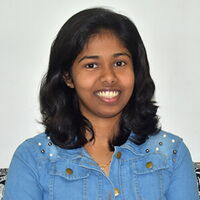
- Host organisation: University of Strasbourg, IPCMS
- Contact: Aleena.joseph@ipcms.unistra.fr
- About me: I am coming from India. I did my Bachelors in Physics from Madras Christian College, Chennai, India and my Masters in Physics from Indian Institute of Technology Hyderabad, India. I was exposed to the research field of spintronics during my Master program and I did my research project on logic applications of nanomagnets. It involved the modelling of logic gates using static and FMR properties of nanomagnets, through OOMMF simulations. As a part of the project, I studied skyrmions, which are of great interest in magnetic logic. I learned mumax3 and ran basic simulations on skyrmions and its dynamics. After my Master I did an internship in the same institute, in which I investigated the tunability of FMR frequency of skyrmions.
- Thesis topic: “Electrically switchable magnetic media for tunable control of quantum states” In my PhD project I plan to extend the concept of strong light matter coupling to magnetic materials. For this purpose, I fabricate and investigate magnetic thin films of magnetic configurations that can be modified by an electric current, as part of the control of the optical component. Another approach is the use of magnetic materials as the ‘matter’ part of the coupling. Here, we investigate how the vibrational modes of the magnetic material that couples strongly with the electromagnetic field can influence the system.
- Individual Training Panel:
Supervisor: Bernard Doudin/ IPCMS, University of Strasbourg
Co-supervisor: Ciarán Fowley / Helmholtz-Zentrum Dresden–Rossendorf
Mentor: Thomas Ebessen / ISIS, University of Strasbourg
3.C Hilbert Space Engineering of Nuclear Spin Qudits
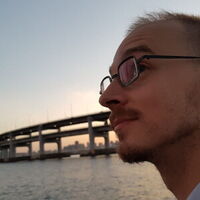
- Host organisation: University of Strasbourg, IPCMS
- Contact: jeangabriel.hartmann@ipcms.unistra.fr
- About me: I grew up in Port Elizabeth, South Africa and I am French / South African. I hold a B.Eng. in Mechatronics Engineering from Nelson Mandela University (NMU) in Port Elizabeth, and a B.Sc. Honours in Mathematical and Theoretical Physics from the University of Cape Town (UCT). During my bachelors, I obtained a scholarship from the Baden-Württemberg Foundation to spend a semester at the University of Reutlingen, and had an internship at the eNtsa Technology Research Station at NMU. I completed my M.Sc. in Applied Mathematics with distinction at the UCT Quantum Gravity and Strings Lab, supported by a scholarship from the South African National Institute for Theoretical Physics. There, my research was focused on simulating many-body quantum systems, in order to study quantum information scrambling and chaos in novel spin networks.
- Thesis topic: “Hilbert Space Engineering of Nuclear Spin Qudits” This project forms part of the broader research area “quantum nanodevices” within the QUSTEC programme, with the overall goal of “engineering better qubits”. While numerous physical qubit implementations are at different stages of technological maturity, each architecture presents its own advantages and disadvantages. In this work, we focus on the theoretical modelling and design of a relatively new class referred to as nuclear spin qudits. We are interested in quantum information processing (QIP) using the higher dimensional, qudit, states obtained from the hyperfine structure of lanthanide group atoms embedded within single molecule magnet (SMM) systems. These SMMs are promising candidates for quantum computing due to the large addressable Hilbert space of certain lanthanide atoms, coupled with the strong environmental isolation provided by the molecules. The purpose of this research is to further develop the QIP capabilities of these systems for applications in quantum computing.
- Individual Training Panel:
Supervisor: Prof. Paul-Antoine Hervieux (University of Strasbourg, IPCMS)
Co-supervisor: Prof. Mario Ruben (Karlsruhe Institute of Technology, IQMT)
3.D Atomic-scale spin sensing using a quantum molecular system at the tip apex of a scanning tunneling microscope
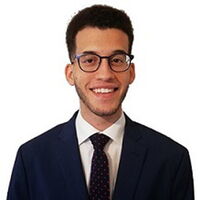
- Host organisation: University of Strasbourg, IPCMS
- Contact: alex.fetida@ipcms.unistra.fr
- About me: My name is Alex, I am from France and Switzerland. I studied physics at the École Polytechnique Fédérale de Lausanne from the bachelor’s to the master’s degree. Before starting a PhD thesis, I did my master project in the Laboratory of Nanostructures at Surfaces of Prof. Harald Brune. I had to find a recipe to make monolayers of barium oxide on platinum with the molecular beam epitaxy technique and I used the scanning tunneling microscope to check the quality of the layers and to evaluate the number of monolayers with respect to the condition of deposition.
- Thesis topic: “Atomic-scale spin sensing using a quantum molecular system at the tip apex of a scanning tunneling microscope”. Within the frame of my thesis, I will use the scanning tunneling microscope (STM) to get a magnetic contrast of a surface with magnetic objects on it, like iron atoms for example. In more detail, a molecule of nickelocene that is magnetic is attached to the tip of the STM. By positioning the tip few Ångstroms (〖10〗^(-10)m) above the targeted object, a current goes through it. It is the conductance of the junction between the tip and the object that provides magnetic information about the latter.
- Individual Training Panel:
Supervisor: Dr. Laurent Limot
4.D Femtosecond magnetization dynamics by Spin Transfer Torque
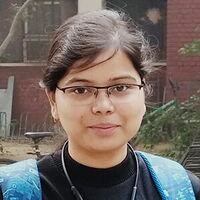
- Host organisation: University of Strasbourg, IPCMS
- Contact: deeksha.gupta@ipcms.unistra.fr
23 Rue du Loess, 67034 Strasbourg
+33 (0) 3 88 10 70 78 - About me: I was born and brought up in Uttar Pradesh, India. I graduated with a Master of Technology from the Indian Institute of Technology, Delhi, in 2019. Before this, I had done M.Sc. with honors and achieved the 3rd rank in the M. J. P. University, India, after which I taught physics to grade 11 & 12 for a couple of years. Owing to my desire to develop a deeper understanding of experimental and technological aspects of the condensed matter physics and pursue research as a career, I took upon the path of doing a second Masters focused on material science. In my M.Tech. project at IIT Delhi, my focus was on building an in-house harmonic Hall measurement set-up for the determination of current-induced spin-orbit torque in ferromagnetic/non-magnetic heterostructures. And, This work was presented in the 64th Annual Conference on Magnetism and Magnetic Materials (MMM) – 2019, held at Las Vegas, USA.
- Thesis topic: “Femtosecond magnetization dynamics by Spin Transfer Torque”. This Ph.D. project is focussed on studying the ultrafast magnetization switching of thin buried ferromagnetic layer by spin-transfer torque. Here, we will be utilising the ultrashort spin-polarized hot electron (SPHE) pulses for switching. Apart from this switching experiment, we will look into the fundamental aspects of the interaction of these hot-electron pulses with the magnetic medium. These ultrashort SPHE pulses can be generated by femtosecond laser pulses. So, to accomplish this task, we will be doing some experiments and theoretical work in IPCMS laboratory, and the major part of this work will be done by utilising the large-scale synchrotron facilities at BESSY (Berlin), SOLEIL (Paris), and XFEL (Hamburg).
- Individual Training Panel:
Supervisor: Christine Boeglin, IPCMS, University of Strasbourg
Co-supervisor: Karsten Holldack, HZB-BESSY, Berlin
4.E Semi-classical modelling of open quantum technology systems
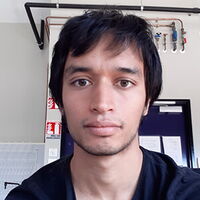
- Host organisation: Université de Strasbourg, ISIS
- Contact: preisserbeltran@unistra.fr
+33 6 47 78 27 66 - About me: I was born in Mexico, in the city of Ensenada, where I did my bachelor degree studies in Physics at the Autonomous University of Baja California. During my bachelor degree I got the opportunity to study a year in Germany at the University of Göttingen with a DAAD scholarship. After finishing my bachelor degree I did a master degree at the National Autonomous University of Mexico where I focused on quantum science and finished my degree with honors. Being a QUSTEC fellow I intend to continue my studies on quantum science and do research in the area of open quantum systems.
- Thesis topic: “Semi-classical modelling of open quantum technology systems”. In my thesis I will develop numerical methods and realise simulations of open many-body quantum systems in order to study their dynamic. In particular, within these systems, I will study a physical phenomenon called entanglement and investigate how the environment affects this property. Entanglement is a primary feature of quantum mechanics lacking in classical mechanics and, broadly speaking, could be described as a physical phenomenon that produces correlation between the measurements of a quantum system. Such type of correlation can be exploited, and is regularly used in the development of quantum algorithms. There exist methods for quantifying such phenomenon, and the measure of entanglement within a system has an impact on the possibility of simulating such systems classically. Hence it is important to be able to understand such property on quantum systems since this can give insight on the limits on which these systems can be simulated with classical computers.
- Individual Training Panel:
PhD supervisor: Johannes Schachenmayer
PhD co-supervisor: Guido Pupillo
5.D Quantum Information Processing with Rydberg atoms: Multipartite Entanglement Generation via Dissipative State Engineering
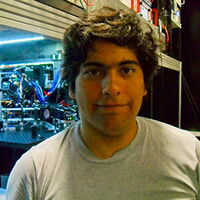
- Host organisation: University of Strasbourg, ISIS
- Contact: morgadovargas@unistra.fr
+33 (0)3 68 85 51 - About me: After completing my high school in Venezuela, I decided to study Physics at the University Simón Bolívar. Following great experiences with particle physics, including participation in the DESY Summer School (2016), I got intrigued with one of the most awe-inspiring branches of physics: Quantum Information Processing. In 2018, I have been awarded a Quantum Science and Nanomaterials (QMat) scholarship for completing a M.Sc. in Condensed Matter and Nanophysics at the University of Strasbourg. Since then, I have been truly interested in developing platforms based on Rydberg atoms with the goal of using them as quantum computers/simulators. My free time is mostly spent in PC-games, cooking and sports such: football, mountain biking, karting and hiking.
- Thesis topic: “Quantum Information Processing with Rydberg atoms: Multipartite Entanglement Generation via Dissipative State Engineering”. Think about two coins spinning on a table, which have equal probability, to be simultaneously in heads or tails. This relation in the probabilities of the coins picture the concept of entanglement then, while the coins represent the qubits made of ultracold atoms. The main goal of my research is to study how such relations in atomic systems can be generated within arrays of qubits by using dissipative quantum effects in our favour, which, in our analogy, are equivalent to classical friction between the coins and the table. This might represent novel ways to perform error-correction in this kind of architecture. Isn’t it amazing?
- Individual Training Panel:
Supervisor: Prof. Shannon Whitlock
6.A Nuclear quantum Effects and magneto-electric patterns of nanostructured hybrid materials: Insights and design via first-principles MOlecular dynamics (NEMO)
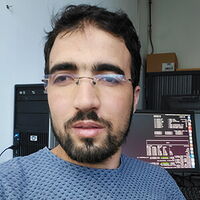
- Host organisation: University of Strasbourg, IPCMS
- Contact: mohammed.guerboub@ipcms.unistra.fr
23 Rue du Loess, 67034 Strasbourg
(33) 3 88 10 71 34 - About me: I am Mohammed Guerboub from Morocco. I was born and grew up in Ribat-El-Kheir located in the Medium Atlas Mountains, which is part of Fez-Meknes region; my native cultural background is a mix between Arabic and Berber ethnics. I obtained my Bachelor’s degree in Physics (speciality: Materials sciences) in 2015 and I hold a Master’s degree in New Material’s Physics & Renewable Energy (PNOMER), obtained in 2017 from Sidi Mohammed Ben Abdellah University/Faculty of Sciences Dhar-El-Mahraz (FSDM).
I joined the Laboratory of Solid State Physics at FSDM in 2017 as an assistant researcher, my work focused on the effect of radiations in semiconductors (III-V) using Monte-Carlo and Molecular Dynamics computational methods. As a visiting researcher, I spent three months (May-August 2019) at National Institute of Materials Physics in Bucharest/Romania where I worked on irradiation defects induced in silicon detectors for particle accelerators and studied the structural and optoelectronic proprieties of ZnO (binary or doped with Eu, Yb, GO, and rGO). - Thesis topic: “Nuclear quantum Effects and magneto-electronic patterns of hybrid and disordered materials: Insights and design via first-principles MOlecular dynamics (NEMO)”. The scope of this project is to provide a computer tool using different simulation methods and HPC resources for the design of tailored multifunctional materials with enhanced properties for multiple applications such as next-generation energy, information storage, electronics, and information technology. The first type of materials targeted are phase change materials (PCMs) that have been of interest for the last decade for non-volatile memories, they are explored for their thermal, magnetoresistance, electronic and spin storage properties for innovative technological applications (such as neuromorphic and quantum computing quantum computing applications). Our objective is to develop benchmarks models using both FPMD and Machine Learning Potentials methods. The second class of materials targeted are novel hybrid organic-inorganic materials and for which we are interested in the evaluation of the role of nuclear quantum effects and magneto-electronic patterns by FPMD modelling.
- Individual Training Panel:
PhD supervisor: Carlo Massobrio, University of Strasbourg, IPCMS
Local co-supervisor: Guido Ori, University of Strasbourg, IPCMS
Partner co-supervisor: Kerstin Falk, University of Freiburg, Fraunhofer Institute IWM
Mentor: Mauro Boero, University of Strasbourg, IPCMS
Other components ITP panel: Assil Bouzid, IRCER-Université de Limoges; Daniele Preziosi, University of Strasbourg, IPCMS
6.B Localisation in disordered systems with long-range interactions
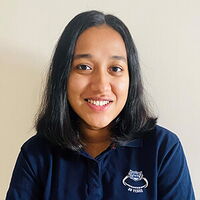
- Host organisation: University of Strasbourg, ISIS
- Contact: v.srivastava@unistra.fr
- About me: I come from India, where I completed my Bachelor’s and Master’s of Technology (5-year integrated dual degree) in Engineering Physics from IIT (BHU) Varanasi in May, 2020. In the summer of 2018, I got the opportunity to work with the Theoretical Atom Optics group at IISER Pune, India. Here, I studied dynamics and quantum correlations of two independently driven Rydberg atoms with distinct laser fields. This work got published first-author in J. Phys. B: At. Mol. Opt. Phys. Overall, this internship experience was a turning point in my academic career which played a significant role in my decision to pursue graduate studies in Physics. Further, in my Master’s project, I dived into the field of Quantum Machine Learning mainly focusing on theoretical ideas for implementation of ML algorithms for classical data using quantum systems to investigate the advantages of hybrid computation.
- Thesis topic: “Localisation in disordered systems with long-range interactions” The localisation of quantum particles due to disorder is a fundamental phenomenon of nature with countless implications ranging from the theory of quantum transport (for example, excitation transfer in photosynthetic complexes) to the design of efficient quantum devices. This can in principle be studied by introducing and investigating theoretical models corresponding to the relevant quantum systems/devices of interest. The theoretical models can also be simulated on engineered quantum systems- quantum simulators. I will be investigating new theoretical ideas and how these quantum simulators can be realized in experiments, in particular with cold ions, and Rydberg atoms or spins / molecules coupled to the light modes of a cavity.
- Individual Training Panel:
Prof. Guido Pupillo
IBM Research – Zurich
1.B Charge noise and coherence of hole spins in group-IV QD devices
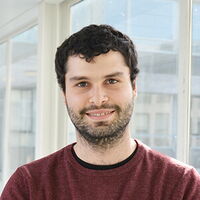
- Host organisation: IBM Research – Zurich
- Contact: KTS@zurich.ibm.com
- About me: My name is Konstantinos but you can call me Kostas. I am 26 years old and I come from Athens, Greece where I did my undergraduate studied in Electrical and Computer Engineering in the N.T.U.A. This was 5 year embedded masters degree where I choose as specialization Electronics, Communications and Physics. After I graduated I moved to London and enrolled in an MSc in Quantum Systems Engineering where I studied the theoretical background of quantum information processing but focus on the experimental realizations of quantum computers. I then moved to Delft in Netherlands where I joined the Spin Qubits group in Qutech and worked on the development of 2D Quantum Dot arrays in Silicon where I familiarized with standard cleanroom processes as well as low-temperature measurements.
- Thesis topic: “Charge noise and coherence of hole spins in group-IV QD devices” My PhD topic at IBM consists in the development of silicon quantum dots for spin Qubits. Silicon is semiconductor meaning that (like an insulator) all the electrons are bounded to its atoms in low temperatures. However (unlike an insulator) is relatively easy to free some of those electrons by applying an external electric field. These electrons behave as in free space but just with a different mass. By applying an electric field in a very small space (about 50 nm) we can trap the free electron (in silicon) these boxes. Then we apply a magnetic field to separate the spin up (Qubit value1) from the spin-down state of the electron (Qubit value 0). After creating many of these boxes (and trapping electrons to each) next to each other we can make them interact and perform Qubit logical gates and realizing a quantum processor.
- Individual Training Panel:
Supervisor: Andres Fuhrer
Co-Supervisor: Dominik Zumbühl
1.G Quantum-coherent microwave-optical conversion
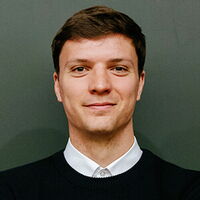
Host organisation: IBM Research – Zurich
Contact: cmo@zurich.ibm.com
Säumerstrasse 4
CH-8803 Rüschlikon
+41 44 724 8528
About me: After growing up with German and French parents in Southern Germany, I followed my passion and studied Physics at Heidelberg University (BSc: 2014-2017, MSc: 2017-2019). My Bachelor project was on “Strong coupling of Trions in Carbon nanotubes”1, where I gained experience in device fabrication, simulation and optical characterisation. During my master studies, I specialized in atomic, molecular, and optical (AMO) physics, and spent a year at Durham University in Northern England for my master thesis on “Rydberg Quantum Optics”2.
1 C. Möhl et al., “Trion-Polariton Formation in Single-Walled Carbon Nanotube Microcavities”, ACS Photonics, 2018, DOI: 10.1021/acsphotonics.7b01549
2 C. Möhl et al.: “Photon correlation transients in a weakly blockaded Rydberg ensemble”, Journal of Physics B, 2020, DOI: 10.1088/1361-6455/ab728f
Thesis topic: “Quantum-coherent microwave-optical conversion”. Building upon recent breakthroughs here at IBM in material and fabrication capabilities with GaP and BaTiO3, we are investigating direct microwave-to-optical conversion via electrooptic coupling. We exploit the large Pockels coefficient in these exceptional optical materials to couple the modes of a microwave cavity and an optical cavity. The ultimate goal is to quantum-coherently and bi-directionally interconvert microwave and optical qubits.
Individual Training Panel:
Dr. Paul Seidler (IBM), Prof. Tobias Kippenberg (EPFL)
1.H Gate-based readout of spin qubits
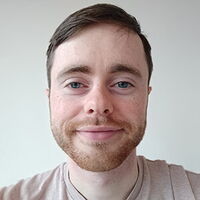
- Host organisation: IBM Research – Zurich
- Contact: egk@zurich.ibm.com
- About me: My name is Eoin Kelly and I come from Galway, Ireland. I completed my bachelor’s degree in “Nanoscience, Physics and Chemistry of Advanced Materials” at Trinity College Dublin in 2017 and had the opportunity to carry out my bachelor thesis on exchange at ETH Zurich. There I investigated basic electronic transport properties of van der Waals heterostructures of 2D materials such as graphene and molybdenum disulphide. Afterwards I moved to Germany to complete my master’s degree in Physics at the University of Stuttgart, which I finished in 2020. I performed my master thesis at the Max Planck Institute for Solid State Research, where I focused on the development of an electrically triggered single-photon source in (Al,Ga)As for on-chip photonic quantum information processing.
- Thesis topic: “Gate-based readout of spin qubits” My PhD project involves the development of a scalable way of measuring the state of spin qubits in silicon quantum dots. A key condition for a quantum computer is the ability to accurately measure the state of a qubit. This is typically done in spin qubits by spin-to-charge conversion, and by using a nearby charge detector to sense the charge state of the quantum dots where the spin qubits are defined. Such charge detectors are however not optimal for a scalable quantum computing platform, as they have a high overhead. A low-overhead alternative is to use a microwave resonator circuit directly attached to the gate that defines a quantum dot, and to measure the charge state by measuring a dispersive shift in the phase or resonance frequency of the resonator. The aim of my project is to demonstrate single-shot readout of silicon spin qubits in a scalable architecture using small-footprint microwave resonators.
- Individual Training Panel:
Supervisor: Dr. Gian Salis (IBM)
Co-supervisor: Prof. Dr. Klaus Ensslin (ETH Zurich)
Walther-Meißner-Institute for Low Temperature Research
1.A Multi-qubit gates for the efficient exploration of Hilbert space with superconducting qubit systems
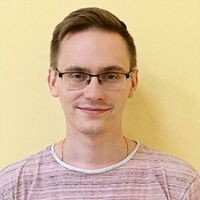
- Host organisation: Walther-Meißner-Institut (WMI)
- Contact: ivan.tsitsilin@wmi.badw.de
Walther-Meißner-Straße 8
D-85748 Garching
+49 (0) 89 289 14224 - About me: I am originally from Russia, where I have completed my bachelor’s and master’s degrees in Physics at the Moscow Institute of Physics and Technology (MIPT). During my studies, I worked on the implementation of superconducting multi-qubit designs and two-qubit gates. My main interest in this field is to explore how to perform an integration between fundamental quantum studies and industry.
- Thesis topic: “Multi-qubit gates for the efficient exploration of Hilbert space with superconducting qubit systems” My project focuses on getting beyond the current paradigm of decomposing all qubit states manipulations only into single and two-qubit gates. The final goal is to address the question of whether there is an advantage of multi-qubit gates over traditional single one and two-qubit gates in practical experiments. To this end, I am going to assess the efficiency of multi-qubit gates in an algorithmic context targeting, e.g., a quantum chemistry problem (VQE).
- Individual Training Panel:
PhD supervisor: Prof. Dr. Stefan Filipp (WMI)
Mentor: Prof. Dr. Alexey Ustinov (KIT)
